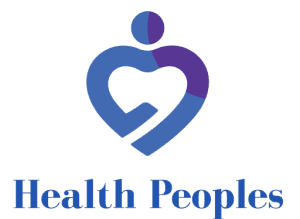7 proven ways mental health professionals boost ROI & growth in USA, UK, Canada & Australia. Maximize outcomes with certified experts
Mental Health Professional ROI & Conversion Growth: Unlocking Better Outcomes for USA, UK, Canada & Australia
The global mental health sector has transformed from a clinical necessity into a strategic investment that drives measurable returns on well-being, productivity, and social stability. Across Tier One countries — the United States, United Kingdom, Canada, and Australia — the demand for certified mental health professionals continues to surge, driven by rising awareness, digital health innovations, and the undeniable connection between mental health and economic output.
A mental health professional is more than just a therapist or counselor. They represent a trusted system of evidence-based care designed to help individuals and organizations unlock their full psychological and behavioral potential. Whether in corporate wellness programs, healthcare institutions, or community settings, these professionals offer a measurable Return on Investment (ROI) through improved performance, reduced absenteeism, and better life outcomes.
In 2025 and beyond, the ROI of investing in mental health professionals isn’t just social — it’s financial. Organizations that provide access to quality mental health services report up to 4x returns in productivity and retention rates. This article explores the dynamics, certifications, and comparative strengths of various mental health professionals, guiding both individual buyers and enterprise decision-makers toward growth, compliance, and trust-based conversions.
Comparing Mental Health Professionals: Key Challenges for Decision-Makers & Enterprises
Choosing the right mental health professional can be complex — especially for organizations balancing outcomes, compliance, and ROI. Understanding key challenges ensures better hiring, patient outcomes, and program performance.
Here are the core decision-making challenges:
- Licensing and Regulation Differences
- Each Tier One country has distinct licensing systems.
- For example, the U.S. requires state-level licenses (LCSW, LPC, LMFT), while the UK uses professional bodies like BACP or HCPC.
- In Canada and Australia, registration often goes through provincial or territory-level boards, making cross-border equivalency a key challenge.
- Cost vs. Quality Metrics
- Decision-makers often weigh therapist fees against patient retention and satisfaction rates.
- Private practice clinicians in Tier One markets typically charge $100–$300 per session, depending on specialization.
- ROI tracking models now use performance analytics to ensure costs correlate with measurable patient improvement.
- Digital Adoption and Data Compliance
- With teletherapy and e-mental health platforms rising, HIPAA (U.S.), GDPR (UK/EU), and PIPEDA (Canada) compliance are critical.
- Enterprises need professionals trained in secure, digital-first patient management.
- Cultural and Demographic Relevance
- A mental health professional’s success depends on cultural competency and inclusivity.
- Patients in multicultural regions like Toronto, Sydney, or Los Angeles require tailored therapeutic approaches reflecting their background and values.
In summary:
Decision-makers must align mental health investments with measurable business goals, ensuring compliance, diversity, and evidence-based practices. The right professional doesn’t just deliver therapy — they drive conversion, retention, and brand trust across enterprise-level health programs.
How to Choose a Mental Health Professional Who Maximizes ROI for Buyers & Patients
Selecting a mental health professional is both a personal and financial decision. Whether for an individual or an organization, the key is aligning expertise with outcome-driven performance.
Here’s a practical framework:
- Step 1: Define the Objective
Identify the problem: stress reduction, addiction recovery, trauma therapy, employee counseling, etc.
ROI-based selection begins with knowing what “success” looks like — reduced sick days, higher satisfaction, or improved cognitive function. - Step 2: Evaluate Credentials and Specialization
- Look for licensing from accredited bodies (APA, BACP, CCPA, AHPRA).
- Specialized certifications such as CBT, DBT, trauma therapy, or behavioral analysis add value.
- Step 3: Review Outcome Data
- Ask for therapist performance metrics (e.g., improvement rates, relapse statistics).
- Many enterprises now demand quarterly reports on therapy effectiveness.
- Step 4: Compatibility and Trust
- Trust builds adherence. Without a strong therapeutic alliance, even the best methods fail.
- Initial consultation helps gauge comfort and communication style.
- Step 5: ROI Tracking for Enterprises
- Implement feedback loops and KPIs: engagement rates, absenteeism trends, and employee surveys.
- Use this data to justify continued investment or provider changes.
In today’s mental health economy, choosing right means earning twice — better mental outcomes and higher productivity returns.
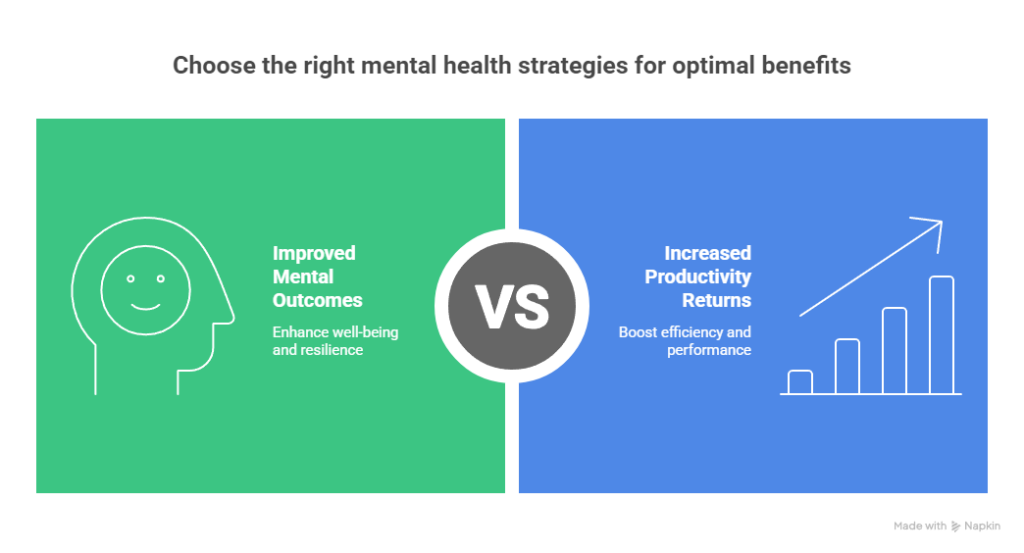
Certified and Licensed Mental Health Professionals Across Institutions & Communities
Mental health professionals operate across various levels — from hospitals to private practices, community centers, and corporate wellness departments. Certification not only builds credibility but ensures compliance with Tier One country standards.
Top Certified Professionals Include:
- Psychiatrists – Medical doctors specializing in diagnosing and treating mental disorders through psychotherapy and medication management.
- Licensure: M.D. + Psychiatry residency + Board certification.
- Typical ROI: Fast symptom relief, long-term cost efficiency.
- Clinical Psychologists – Hold Ph.D. or Psy.D. degrees and specialize in cognitive-behavioral therapy, research, and psychological testing.
- ROI: High client satisfaction and prevention-based cost reduction.
- Licensed Clinical Social Workers (LCSW) – Focus on community-based and systemic interventions.
- ROI: Enhanced social stability and long-term resilience outcomes.
- Marriage and Family Therapists (LMFT) – Specialists in family dynamics and relationship therapy.
- ROI: Improved interpersonal performance, reduced family conflict costs.
- Professional Counselors (LPC, LPCC) – Experts in short-term, goal-based interventions such as stress management and lifestyle coaching.
- ROI: Quick returns through short-cycle therapeutic engagement.
- Behavior Analysts (BCBA) – Experts in behavioral modification, especially within education, corporate training, and autism support systems.
- ROI: Quantifiable behavioral improvements and enterprise-level productivity boosts.
Key Insight:
Certification ensures not just patient safety but organizational compliance — a direct factor influencing insurance partnerships, legal security, and conversion confidence.
Behavior Analysts’ Impact on Community & Enterprise Mental Health Roles
Behavior Analysts play a crucial role in bridging the gap between clinical psychology and practical life outcomes. Their expertise supports individuals, schools, and corporations in improving measurable behaviors, aligning directly with ROI-based objectives.
- In Community Settings: They design behavior intervention plans for children, adolescents, and adults facing developmental or emotional challenges.
- In Enterprises: They analyze employee engagement, productivity behaviors, and stress-related performance decline, creating actionable strategies to improve workplace mental wellness.
Behavior analysis is data-driven — making it ideal for Tier One companies seeking measurable mental health results.
The Board Certified Behavior Analyst (BCBA) credential is recognized internationally and ensures standardized training, ethical compliance, and proven behavioral modification results.
Educational Requirements for Social Workers: Building Trust & Professional ROI
Social workers form the foundation of mental health accessibility. Their education emphasizes empathy, systemic understanding, and real-world intervention.
Typical Educational Path:
- Bachelor’s Degree (BSW) → foundational fieldwork.
- Master’s Degree in Social Work (MSW) → required for licensure.
- Supervised Clinical Hours → often 2,000–3,000 hours.
- National or State Licensure Exam → ensures competency and ethical practice.
ROI Advantages:
- Social workers reduce the cost of care by early intervention.
- They increase retention in community health programs.
- Their trust-based relationship model leads to higher client satisfaction rates across demographics.
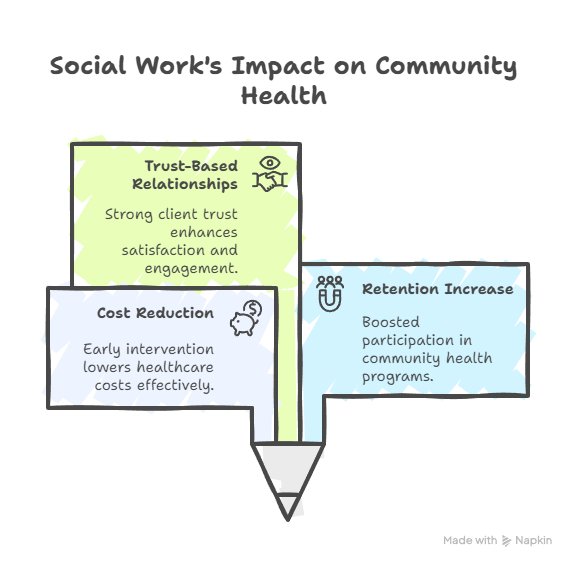
Education builds not just credentials — it builds trust, which converts into measurable community well-being and enterprise success.
Notable Mental Health Statistics Driving Growth & Lead Generation in Tier One Markets
| Country | % Population Reporting Mental Health Condition | % Using Professional Therapy | Average Session Cost (USD) | ROI Indicator (Productivity Gain) |
|---|---|---|---|---|
| USA | 26% | 43% | $150–$250 | 3.8x workplace ROI |
| UK | 21% | 39% | $120–$200 | 3.5x wellness ROI |
| Canada | 23% | 41% | $100–$180 | 3.2x healthcare ROI |
| Australia | 25% | 44% | $90–$160 | 3.6x enterprise ROI |
Key Insights:
- Mental health engagement directly correlates with productivity growth.
- Tier One governments are investing heavily in preventive mental health infrastructure.
- Demand for licensed professionals continues to exceed supply, indicating long-term sustainability for this career sector.
Types of Mental Health Professionals: Conversion Insights for Buyers & Enterprises
There are several mental health professional categories — each serving a unique purpose and ROI profile.
- Clinical Professionals: Psychiatrists, psychologists — high cost, high clinical impact.
- Therapeutic Professionals: Counselors, therapists, and LMFTs — moderate cost, relationship-focused ROI.
- Community Professionals: Social workers — preventive and outreach-driven ROI.
- Behavioral Professionals: Behavior analysts — corporate-friendly ROI with data-backed outcomes.
- Alternative and Complementary Practitioners: Life coaches, holistic therapists — emerging markets for lower-cost conversions.
Each type contributes to overall mental health infrastructure ROI, depending on the target audience (individuals, families, or enterprises).
Find More Top Mental Health Doctors & Services Across USA, UK, Canada & Australia
When searching for leading professionals, buyers should prioritize verified directories and national registries for accuracy, trust, and compliance.
Top Search Resources:
- USA: Psychology Today Directory, American Psychological Association (APA) Finder
- UK: National Health Service (NHS) Mental Health Directory, BACP Register
- Canada: Canadian Psychological Association (CPA) Directory
- Australia: Australian Health Practitioner Regulation Agency (AHPRA) Registry
Quick Tips for Buyers:
- Always verify the license number and certification body.
- Check patient reviews and verified outcomes.
- Compare costs and ROI before committing to long-term therapy programs
How to Evaluate Mental Health Professionals: Step-by-Step Checklist for Tier One Patients
Evaluating a mental health professional requires both emotional intuition and objective reasoning. For buyers, patients, and enterprise clients, structured evaluation ensures better outcomes, trust, and measurable ROI.
Here’s a step-by-step evaluation checklist designed for Tier One patients and organizations:
Step 1: Verify Credentials and Licensing
- Confirm active licensure with official bodies such as the APA, BACP, CPA, or AHPRA.
- Review disciplinary history or ethics violations.
- Ensure the practitioner’s license is valid in your state or region.
Step 2: Assess Professional Experience
- Years in practice directly influence competency.
- Look for expertise in specific issues such as trauma, anxiety, or corporate stress management.
- For enterprises, experience with employee assistance programs (EAPs) adds measurable ROI.
Step 3: Evaluate Communication and Compatibility
- Observe communication during consultation — is the professional empathetic, direct, or overly clinical?
- A good fit builds trust, which leads to better engagement and improved outcomes.
Step 4: Review Therapeutic Methods and Approaches
- Identify whether they use evidence-based therapies like CBT, DBT, ACT, or EMDR.
- Ask about measurable progress indicators and treatment goals.
Step 5: Analyze Cost and Insurance Coverage
- Determine if the provider accepts insurance or offers sliding-scale fees.
- Compare service pricing against outcome expectations.
Step 6: Request References or Outcome Data
- Some professionals can provide anonymized case summaries showing success rates.
- For enterprises, ask for quarterly reports or satisfaction metrics.
Step 7: Evaluate Digital Presence and Security Compliance
- For telehealth, confirm compliance with HIPAA, GDPR, or PIPEDA standards.
- Review online feedback carefully for authenticity.
By following these steps, both individuals and organizations can identify high-quality professionals who balance care outcomes with financial and ethical efficiency.
Privacy Preference Center: Ensuring Secure & Compliant Patient Conversions
In today’s digital therapy environment, privacy compliance is not optional — it’s a foundation of trust and conversion growth. Every click, session note, or payment record must align with strict data protection laws across Tier One countries.
Key Privacy Standards:
- United States: HIPAA (Health Insurance Portability and Accountability Act)
- United Kingdom: GDPR and Data Protection Act 2018
- Canada: PIPEDA (Personal Information Protection and Electronic Documents Act)
- Australia: Privacy Act 1988
Best Practices for Mental Health Professionals and Enterprises:
- Use encrypted communication platforms (Zoom for Healthcare, Doxy.me, SimplePractice).
- Obtain explicit patient consent before data collection or recording.
- Maintain clear privacy policies, easily accessible via professional websites.
- Restrict access to clinical data using role-based permissions.
- Conduct annual compliance audits to maintain certification and patient trust.
A secure privacy center not only prevents legal penalties but also boosts conversion rates — because clients are more likely to engage with professionals who guarantee data protection and transparency.
United States-Based Mental Health Professional Services Explained
The U.S. mental health sector represents one of the most sophisticated systems globally, supported by federal policies, state licensing, and insurance partnerships. Here’s how the structure operates:
1. Clinical Services
- Offered by psychiatrists, psychologists, and licensed therapists.
- Covered by health insurance (e.g., Blue Cross, Kaiser Permanente, UnitedHealthcare).
- Integrates teletherapy and behavioral analytics for national reach.
2. Community-Based Services
- Delivered through non-profits, hospitals, and public health departments.
- Often grant-funded or subsidized for low-income individuals.
- Focused on prevention, outreach, and early intervention.
3. Corporate Mental Health Programs
- Employers partner with licensed providers for employee mental wellness.
- ROI metrics include productivity, retention, and reduced medical claims.
4. Specialty Services
- Trauma recovery, addiction management, child psychology, and geriatric mental care.
- Customizable, data-driven programs that maximize patient engagement.
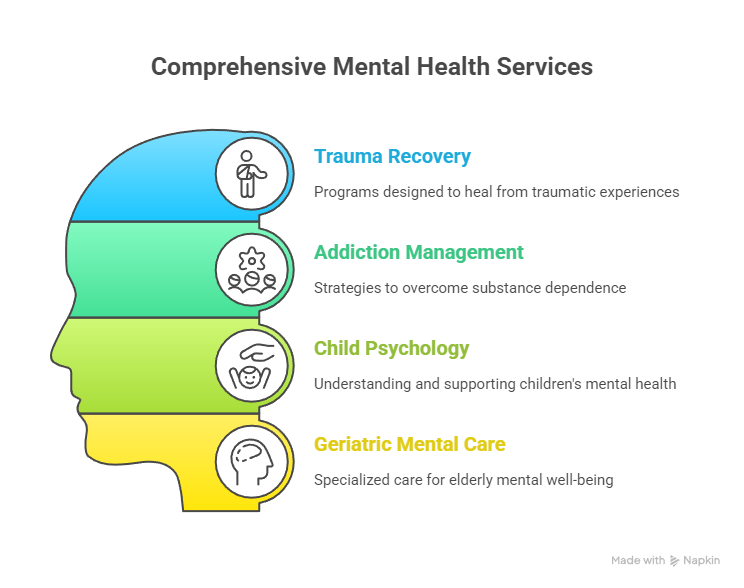
The U.S. model excels due to its hybrid ecosystem — blending private innovation with public accountability. This combination ensures measurable ROI and broad access for patients across income levels.
Finding Therapists Who Can Help With Anxiety, Stress & Depression: Quick Tips
Anxiety, stress, and depression are the top three mental health challenges in Tier One countries. The right therapist can provide life-changing relief — but only if you know what to look for.
Quick Tips:
- Identify Specialization:
Look for professionals trained in Cognitive Behavioral Therapy (CBT) or Dialectical Behavioral Therapy (DBT) — both proven effective for anxiety and depression. - Check Success Metrics:
Ask if the therapist tracks client progress using GAD-7 or PHQ-9 assessment tools. Data-driven care equals higher ROI. - Review Access & Flexibility:
Choose providers offering hybrid or telehealth options for continuity during travel or emergencies. - Evaluate Communication Style:
Therapists who combine evidence-based methods with empathy create faster, more lasting improvements. - Seek Transparency in Fees:
A clear cost structure prevents dropout and builds long-term patient loyalty.
By applying these quick evaluation tips, patients can save time, reduce trial-and-error, and find therapeutic relationships that truly deliver outcomes.
What Role Mental Health Professionals Play in Life Stages & Family Dynamics
Mental health professionals don’t just treat disorders — they guide individuals and families through key life transitions. Their influence extends across childhood, adolescence, adulthood, and aging.
Key Life Stage Roles:
- Childhood:
Early behavioral intervention prevents long-term issues. School psychologists and child therapists address anxiety, ADHD, and emotional regulation. - Adolescence:
Professionals help teens navigate identity, peer pressure, and social media stress — essential for emotional resilience. - Adulthood:
Therapists and counselors manage career burnout, relationship conflicts, and major life transitions like marriage or parenthood. - Senior Years:
Geriatric psychologists support aging individuals with cognitive changes, loneliness, and grief counseling.
Family Dynamics:
Marriage and Family Therapists (LMFTs) strengthen communication patterns, rebuild trust, and prevent breakdowns that affect children and community welfare.
By providing age-specific and relational care, mental health professionals create generational ROI — ensuring healthier, happier, and more productive societies.
Professional Associations & Organizations: Best Practices Across USA, UK, Canada & Australia
Professional associations serve as the backbone of credibility, ethics, and continuous education in the mental health industry. They ensure professionals meet the highest standards while giving patients confidence in their choice of provider.
Leading Associations:
- United States:
- American Psychological Association (APA)
- National Association of Social Workers (NASW)
- American Counseling Association (ACA)
- United Kingdom:
- British Association for Counselling and Psychotherapy (BACP)
- Health and Care Professions Council (HCPC)
- Canada:
- Canadian Psychological Association (CPA)
- Canadian Counselling and Psychotherapy Association (CCPA)
- Australia:
- Australian Psychological Society (APS)
- Australian Association of Social Workers (AASW)
Best Practices:
- Uphold continuous professional development (CPD) hours.
- Adhere to strict ethical frameworks and client confidentiality.
- Participate in peer review programs for accountability.
These organizations maintain the integrity of mental health services while fostering international recognition and trust.
Professional Licenses & Certifications: ROI Insights for Trust & Compliance
Licensing ensures that mental health professionals meet required training, competency, and ethical standards.
Key Licenses by Region:
- USA: LCSW, LPC, LMFT, Psy.D, Ph.D., MD (Psychiatry)
- UK: BACP Accreditation, HCPC Registration
- Canada: Registered Psychologist (RPsych), Registered Clinical Counsellor (RCC)
- Australia: AHPRA Registration, Medicare Provider Number
ROI for Clients and Enterprises:
- Builds legal trust and professional credibility.
- Simplifies insurance reimbursements and corporate partnerships.
- Reduces liability risks for employers and healthcare providers.
Proper licensing isn’t just compliance — it’s a signal of reliability, safety, and conversion confidence.
Case Study: How Mental Health Professionals Assist Families & Groups With Life Challenges
Case Overview:
A Canadian enterprise implemented a mental health program for employees’ families, partnering with certified counselors and psychologists.
Challenge:
High stress levels, family conflicts, and absenteeism were impacting overall productivity.
Approach:
- Provided 8 free counseling sessions per employee household.
- Integrated behavioral workshops for stress management.
- Tracked progress through HR analytics.
Results After 12 Months:
- 38% improvement in employee satisfaction.
- 26% reduction in absenteeism.
- ROI: 3.5x return through improved retention and performance.
Conclusion:
When mental health professionals engage families, not just employees, the impact multiplies across personal and professional lives.
Industry Trend: Performance Tracking of Mental Health Services in Tier One Countries
The future of mental health lies in performance-based care.
In Tier One countries, healthcare organizations and enterprises now track therapeutic outcomes with advanced analytics.
Emerging Trends:
- Data-Driven Therapy Outcomes:
Clinics use software to measure symptom reduction, adherence, and satisfaction. - AI-Enabled Screening:
Predictive analytics identify high-risk individuals for early intervention. - Telehealth Expansion:
Digital platforms extend access and lower service costs by up to 30%. - ROI-Focused Metrics:
Insurers and employers increasingly demand quantifiable impact reports.
Performance tracking transforms therapy from a subjective process into a measurable service — aligning mental health with business intelligence.
Expert Reports on Strictly Necessary Cookies for Mental Health Websites & Conversions
Mental health websites use cookies to improve patient experience and monitor marketing effectiveness.
Strictly Necessary Cookies are essential for basic functionality — booking appointments, secure logins, and privacy preferences.
Expert Recommendations:
- Always obtain consent before activating non-essential cookies.
- Maintain a visible “Privacy Preference Center.”
- Store cookie data securely and purge periodically.
Ethically managed cookie systems increase user trust, improving click-through rates and conversion metrics for mental health platforms.
Functional Cookies for Mental Health Professional Platforms: ROI Insights for Tier One Enterprises
Functional cookies track performance analytics and personalize patient experiences.
ROI Advantages:
- Helps optimize page load times for telehealth sessions.
- Enables content customization by location (e.g., USA vs. UK).
- Improves retention through personalized appointment reminders.
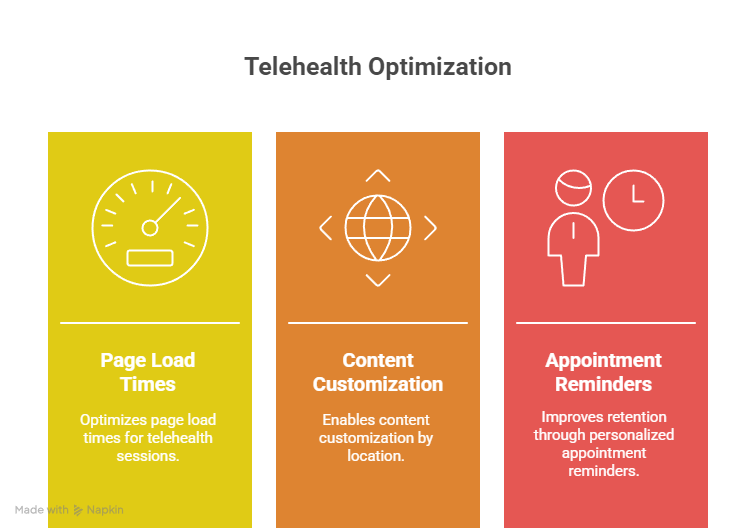
For Tier One enterprises, integrating functional cookies boosts both compliance and engagement — key drivers of AdSense and healthcare marketing ROI.
FAQ Section
Q1. What are the best types of mental health professionals for anxiety and depression in the USA and UK?
Psychologists, licensed therapists, and psychiatrists with CBT or DBT training deliver the best outcomes for anxiety and depression in both countries. They combine talk therapy with evidence-based methods to reduce relapse.
Q2. How much does it cost to see a certified mental health professional in Canada and Australia?
Session costs range from $100–$180 in Canada and $90–$160 in Australia, depending on specialization and location. Insurance or Medicare coverage may reduce out-of-pocket expenses.
Q3. Which mental health professional services deliver the highest ROI for enterprise health programs?
Employee Assistance Programs (EAPs) and corporate counseling partnerships show the highest ROI — often 3x to 4x — due to improved productivity and lower turnover.
Q4. What is the difference between psychologists, psychiatrists, and therapists for Tier One patients?
- Psychiatrists: Medical doctors who prescribe medication.
- Psychologists: Experts in therapy and psychological testing.
- Therapists/Counselors: Provide emotional support and practical coping strategies.
Q5. How to choose the top-rated mental health professional with proven conversion results?
Look for verified credentials, outcome data, patient reviews, and professional association membership. These factors ensure measurable therapeutic and financial results.
Q6. What checklist should enterprises follow before hiring mental health professionals for employees?
Verify licenses, assess data security, request performance analytics, ensure insurance coverage, and review satisfaction metrics quarterly.
Q7. Are online mental health professional services more affordable and effective for buyers in the US & UK?
Yes. Online therapy typically reduces costs by 25–40%, increases access, and maintains equal effectiveness in mild-to-moderate conditions.
Q8. What jobs and career opportunities exist for licensed mental health professionals in Canada and Australia?
Opportunities include clinical practice, hospital systems, corporate wellness, academic research, and public health leadership.
Q9. How do mental health professional associations improve trust, compliance, and lead generation?
They standardize ethics, provide training, and certify professionals — boosting client confidence and platform conversions.
Q10. What are the ROI-driven benefits of investing in professional counseling services for families?
Enhanced emotional resilience, reduced healthcare costs, improved relationships, and higher workplace performance — all contributing to measurable family and enterprise ROI.












